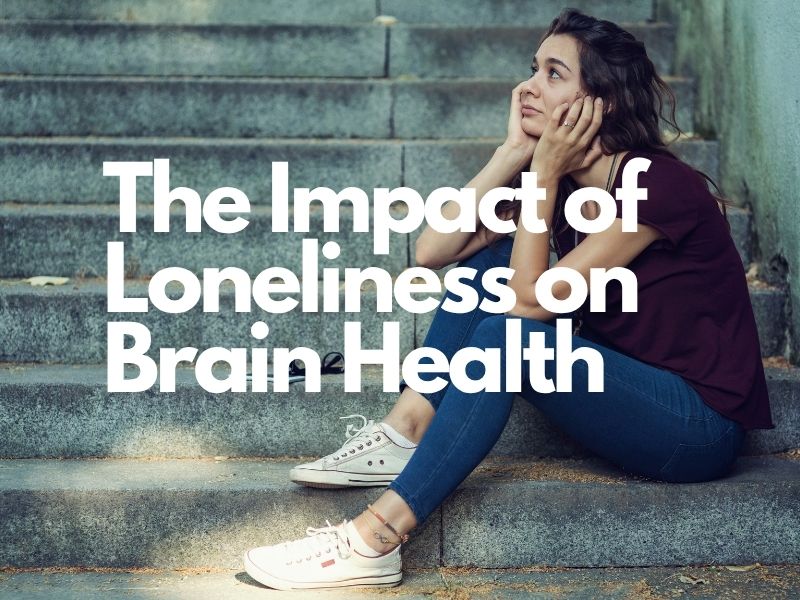
Introduction:
Do you ever feel alone even when you’re in a crowd? The feeling of being lonely isn’t just about being alone. It can affect your brain. The impact of loneliness on the brain is real. A feeling of loneliness for a long period of time can affect the way your brain functions. It could also impact your mood.
This blog will discuss how loneliness alters the brain. We will also provide strategies to reconnect with people. There is no one to blame for this. Let’s work together to learn.
What Is Loneliness?
The feeling of loneliness is one. It’s when you feel as if there’s no one you can speak to. Even when you’re around others, it’s still possible to feel isolated. It’s not only about feeling in a lonely place. It’s about feeling as if you’re not connected to other people.
The feeling could be triggered by losing a loved one. It could also be triggered by the move to a new location. Sometimes, it’s just a matter of time even when everything seems good.
How Loneliness Affects the Brain
The effect of loneliness on the brain can be severe. Research has shown that loneliness alters the brain’s structure. It alters the areas in the brain which aid you think and feel.
- Stress Hormones Increase: If you are feeling alone, your body produces additional stress hormones. This can affect your memory and hinder learning.
- Sleep Issues: Loneliness can make difficult to fall asleep. A lack of sleep can cause weakness to the brain.
- Danger of Depression the longer that you’re feeling alone the more likely you will feel depressed or lonely.
- Brain Shrinking Chronic loneliness may make brain regions smaller.
The changes could make life more difficult. However, the good thing is that you are able to heal.
Why Human Connection Helps Reverse the Impact of Loneliness
Your brain loves connection. Conversation, laughter and sharing your thoughts with other people helps keep your brain healthy.
- Better mood: Being with kind people can make you feel good.
- More Sharp Thinking Connectivity helps focus more effectively.
- Lower Stress Being close with people reduces stress.
Being connected is a form of exercise in your mind.
Signs You’re Feeling the Impact of Loneliness
The effects of loneliness on the brain is at a low level. However, it is possible to detect it in the early stages. Pay attention to these indicators:
- You are exhausted all the time.
- Avoid talking to strangers.
- Feeling depressed or empty.
- It is difficult to concentrate.
- You log on for hours and still feeling lonely.
If you’re feeling like this then you might be being lonely. However, help is available.
How to Reconnect With Others
Connecting is simple. It doesn’t require a large crowd. A single person is enough to assist.
- Talk to someone: Call or text someone you know or have a relationship with.
- Join an Organization: Try a local club or a hobby group.
- Go outside: Even a walk in the park could lift your spirits.
- Smile at others: A smile can be the start of a conversation.
- Volunteering: Helping others is the best way to build relationships.
These little steps can make an enormous difference in your daily life.
Use Technology to Reduce the Impact of Loneliness
If you are unable to see people face-to–face, try using technology! It’s not exactly the same but it’s still helpful.
- Video calls: See and talk with loved ones.
- Online Support Groups Meet people that have similar feelings to you.
- Social Media: Follow kind, positive people.
Be sure to break up your work. Screen time too much can lead to loneliness.
Practice Self-Care to Ease the Impact of Loneliness
When you take care of your body, your brain will feel better as well.
- Eat Healthily: Foods like berries and nuts can help your brain.
- Sleep well: Try to get 7 to 9 hours of sleep each evening.
- Exercise Everyday: Move your body to increase your mood.
- Write Journals: Writing down your thoughts can provide relief.
- Practice the art of gratitude: Think of three positive things you do each day.
Self-care practices can heal your brain and lessen the effects of loneliness.
When to Seek Help for the Impact of Loneliness
Sometimes, loneliness can be too overwhelming to manage on its own. That’s okay. There are people around who can assist you.
- Consult a doctor: They can check the health of your brain.
- Talk to a Counselor: A trained person can assist you in overcoming your feelings.
- Join an online support group: You’ll meet others who are able to understand.
The act of asking for help is powerful and not weak.
Help Others Struggling With the Impact of Loneliness
It’s not just you. Many others feel lonely as well. You are the one who can help.
- Send a thoughtful message to someone you know.
- Invite anyone for a stroll or coffee.
- Make a check-in with your neighbor.
Helping others can help your brain too.
Final Thoughts on the Impact of Loneliness on the Brain
The effect of loneliness on the brain is a fact. But it can get better. It is possible to reconnect with people. You can take care of your brain.
Start small. Chat with someone. Walk. Ask for help. Your brain is able to heal, as can your heart.
There is no need to be alone.
Source
